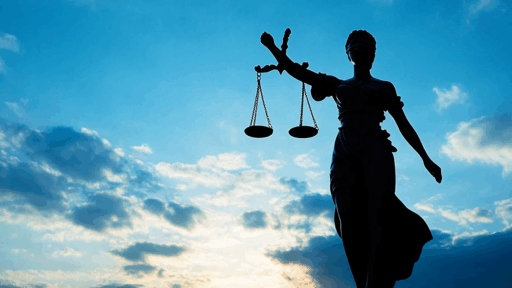Navigating the complexities of notary laws and practices can be daunting, but the Notary Education Group aims to simplify this journey. As a leading provider of notary training and resources, they equip aspiring notaries with the knowledge and skills needed to excel in their roles.
By offering comprehensive courses and expert guidance, the Notary Education Group ensures that participants are well-prepared to handle the responsibilities and challenges of notarization. Their commitment to quality education helps build a community of competent and confident notaries, ready to serve with integrity and professionalism.
Overview of The Notary Education Group
The Notary Education Group delivers top-tier educational resources for aspiring and current notaries. They provide detailed courses covering state-specific notary laws, procedures, and best practices. Their curriculum includes both basic and advanced training, ensuring all levels of notary professionals get the knowledge they need.
Course Offerings
- Basic Notary Training: Covers fundamental skills and requirements. Provides new notaries with an introduction to their duties, including document notarization, verifying identification, and maintaining records.
- Advanced Notary Courses: Focuses on complex scenarios and advanced notary skills. Includes lessons on handling loan signings, electronic notarizations, and navigating state-specific regulations.
- Continuing Education: Keeps notaries up-to-date with the latest industry changes. Offers periodic updates on new laws, technology advancements, and evolving best practices.
Expert Instructors
Courses at The Notary Education Group are led by industry experts. Instructors include experienced notaries and legal professionals who bring practical knowledge to the classroom. They provide real-world examples and hands-on training to ensure comprehensive learning.
Online Learning Platform
The Notary Education Group’s online learning platform offers flexibility. It allows students to access courses anytime, anywhere. The platform includes video tutorials, quizzes, and interactive modules, promoting an engaging learning experience.
Community Support
Students and alumni benefit from a strong community network. The Notary Education Group provides forums, Q&A sessions, and peer support groups. These resources enable notaries to share experiences, ask questions, and gain insights from seasoned professionals.
Certification and Accreditation
Upon course completion, participants receive certification recognized by many state authorities. Accreditation by relevant professional bodies ensures that the courses meet high educational standards.
Resources and Tools
The Notary Education Group equips notaries with essential resources. These include sample documents, reference guides, and access to notary law libraries. Tools provided ensure all necessary information is at the fingertips of students and professionals.
This focus on comprehensive training, expert instruction, flexible online learning, community support, recognized certification, and extensive resources underscores The Notary Education Group’s commitment to fostering skilled and confident notaries.
Course Offerings
The Notary Education Group provides a variety of courses designed to meet the needs of notaries at all experience levels. Their offerings cover foundational to advanced training, ensuring comprehensive education.
Basic Notary Training
The Basic Notary Training course offers fundamental knowledge needed for new notaries. It covers essential topics, including state-specific laws, notary procedures, and ethical practices. The course includes practical examples and exercises to help participants gain confidence. Upon completion, participants earn a certification recognized by state authorities.
Advanced Notary Courses
Advanced Notary Courses target experienced notaries facing complex scenarios. Topics include real estate closings, loan signings, and handling special documents. These courses delve into advanced legal requirements and best practices. Industry experts lead these sessions, providing insights and practical advice to enhance notary skills. Continuing education credits count towards professional development.
Specialty Certifications
Specialty Certifications offer advanced credentials for notaries in niche areas. Courses cover topics like immigration documentation, healthcare directives, and legal affidavits. Participants receive specialized training designed to deepen knowledge and expertise in specific fields. Certification provides additional credibility and opens up new professional opportunities.
Teaching Methodology
The Notary Education Group employs diverse teaching methods to cater to different learning preferences and schedules.
Online Classes
The Notary Education Group offers highly interactive online classes. These classes include video lectures, quizzes, and interactive modules. Learners can access materials 24/7, allowing them to study at their convenience. Instructors present complex notary concepts through real-world examples and case studies. Virtual simulations enhance problem-solving skills and practical application.
In-Person Workshops
In-person workshops provide hands-on learning experiences. These sessions offer direct interaction with instructors and peers. Participants engage in role-playing exercises and mock notarizations to build confidence and expertise. Workshops cover advanced topics and niche areas through detailed demonstrations. Training is personalized, addressing individual questions and scenarios.
Pricing Structure
Notary Education Group offers a transparent and flexible pricing structure designed to accommodate different budgets and learning needs.
Course Fees
Courses range from $99 to $499, depending on complexity and level. Basic Notary Training starts at $99, covering foundational knowledge required for new notaries. Advanced Notary Courses, addressing complex scenarios, start at $299. Specialty Certifications, providing advanced credentials in niche areas, start at $399, offering specialized training in immigration documentation and healthcare directives. Flexible courses and expert-led instruction highlight the value provided at each pricing tier.
Payment Plans
Participants can opt for payment plans to spread costs over several months. Notary Education Group offers interest-free installment options for payments exceeding $199. Enrollees can choose between a 3-month or 6-month plan, making the education more accessible. Ease of financial management ensures learners can focus on their studies without immediate financial strain. The option to stagger payments underscores the group’s commitment to providing accessible education for all aspiring notaries.
Student Support Services
The Notary Education Group commits to exceptional student support services, ensuring learners have access to resources that aid their success.
Customer Service
The Notary Education Group’s customer service team offers prompt, knowledgeable assistance to students. Trained representatives address inquiries regarding course content, platform navigation, and certification processes, ensuring that students receive accurate information quickly. Available via phone, email, and chat, they provide personalized support tailored to individual needs.
Alumni Network
An active alumni network enriches the learning experience at the Notary Education Group. Graduates join a community of professionals who share insights, job opportunities, and continuing education resources. This network facilitates mentorship connections and peer support, fostering long-term professional growth and collaboration among notaries.
Pros and Cons
The Notary Education Group offers both benefits and drawbacks to its users. These elements should be considered when evaluating the group’s educational resources.
Advantages
The Notary Education Group provides numerous advantages:
- Comprehensive Curriculum: The group offers courses covering state-specific notary laws, procedures, and best practices, ensuring students are well-prepared for their roles. This includes basic training, advanced courses, and specialty certifications (e.g., immigration documentation and healthcare directives).
- Expert Instruction: Courses are led by industry experts who bring practical knowledge and real-world examples, enhancing the learning experience. For instance, advanced courses on real estate closings and loan signings feature scenarios from experienced professionals.
- Flexible Learning Options: The online platform allows students to access courses on their schedule. Interactive features include video lectures, quizzes, and case studies. Additionally, in-person workshops offer hands-on experiences like mock notarizations, catering to various learning preferences.
- Certification: Upon course completion, participants receive certification recognized by many state authorities, providing added credibility and career opportunities.
- Student Support: The group offers exceptional customer service, addressing inquiries via phone, email, and chat. The active alumni network connects graduates, fostering professional growth through shared insights and job opportunities.
- Affordable Pricing: The transparent pricing structure ranges from $99 for basic training to $499 for specialty certifications. Interest-free payment plans are available for courses over $199, offering financial flexibility.
Disadvantages
However, there are some potential disadvantages to consider:
- Cost: Despite the flexible payment options, some may find the price range of $99 to $499 steep, especially for more advanced or specialized courses.
- Time Commitment: Completing comprehensive courses, particularly advanced or specialty certifications, requires significant time investment, which could be challenging for those with busy schedules.
- Access to In-Person Workshops: While online courses offer convenience, access to in-person workshops might be limited by geographic location, potentially excluding those who prefer hands-on learning but cannot travel.
- Course Updates: Since notary laws and practices can change, courses might need frequent updates to stay current, and there might be lag times before updates are integrated into the curriculum.
Considering these pros and cons can help individuals decide if the Notary Education Group aligns with their educational needs and career goals.
Discover the Power of BlueNotary:
Integrate your Business, Title Company, or Law Firm to Satisfy your Customers and Decrease Turnaround
Get a document Notarized/Sign-up
Join the Free Notary Training Facebook Group
Conclusion
The Notary Education Group stands out as a premier provider of notary training, offering a comprehensive curriculum and expert-led courses. Their flexible learning options and robust support services ensure that both new and experienced notaries can access the resources they need to excel. With a commitment to quality education and professional growth, the Notary Education Group equips notaries with the skills and confidence to serve with integrity and professionalism. Their transparent pricing and payment plans further enhance accessibility, making it easier for aspiring notaries to invest in their future.
Frequently Asked Questions
What is the Notary Education Group?
The Notary Education Group is a leading provider of notary training and resources, offering comprehensive courses and expert guidance to help aspiring and current notaries understand and fulfill their responsibilities.
What types of courses does the Notary Education Group offer?
The Notary Education Group offers basic training for new notaries, advanced courses for complex scenarios, and continuing education to keep professionals updated on industry changes. They also provide specialty certifications in areas like immigration documentation and healthcare directives.
How are the courses delivered?
Courses are available through an online learning platform with video lectures, quizzes, and real-world case studies. In-person workshops are also offered for hands-on learning experiences, including role-playing exercises and mock notarizations.
How much do the courses cost?
Course fees range from $99 to $499, depending on the complexity and level. Basic Notary Training starts at $99, while advanced courses begin at $299. Specialty Certifications start at $399. Interest-free payment plans are available for courses over $199.
What kind of support does the Notary Education Group offer?
The Notary Education Group provides excellent student support through their customer service team, available via phone, email, and chat. They also have an active alumni network that offers mentorship, job opportunities, and continuing education resources.
Are the certifications from the Notary Education Group recognized by state authorities?
Yes, participants receive certifications that are recognized by many state authorities, ensuring that their training meets the necessary professional and legal standards.
What are the advantages of choosing the Notary Education Group?
Advantages include a comprehensive curriculum, expert instruction, flexible learning options, recognized certification, strong student support, and affordable pricing. These benefits aim to foster skilled and confident notaries.
What are the potential drawbacks?
Potential drawbacks include the cost of courses, the time commitment required for completion, limited access to in-person workshops, and the need for frequent course updates to keep pace with changing notary laws.








